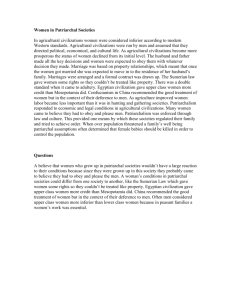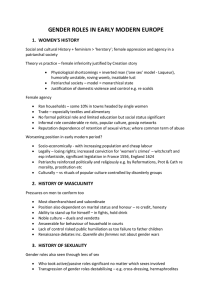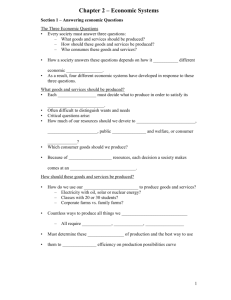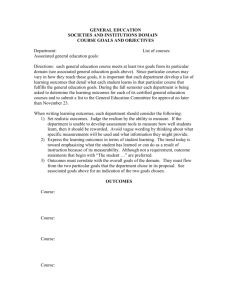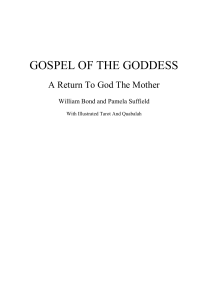Women in Patriarchal Societies
advertisement
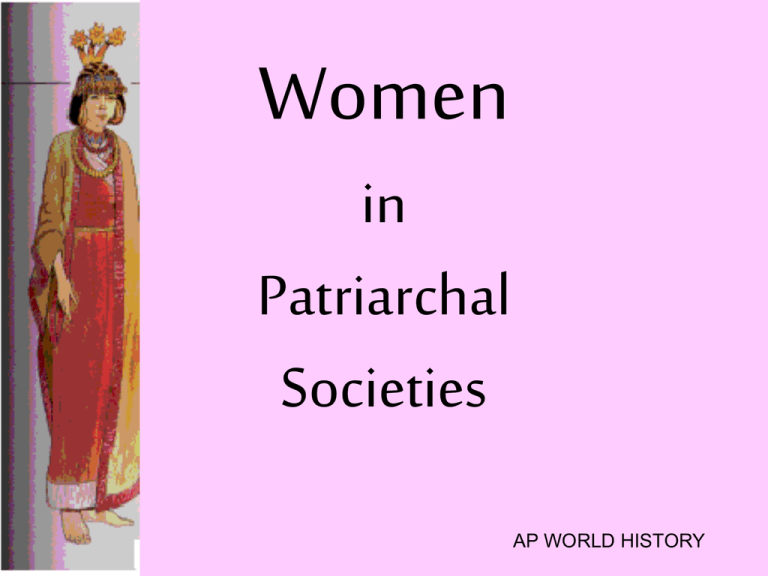
Women in Patriarchal Societies AP WORLD HISTORY Early Agricultural Societies • Most were PATRIARCHAL : which means they were run by men and based on the assumption that men directed political, economic and cultural life. • Family structure rested on men’s control of property. Mesopotamia • Marriages were arranged for women by their parents. • The husband served as authority over his wife and children as he did over his slaves. • Adultery by a wife = punishable by death…. • Adultery by a husband = far more tolerated. Double Standard? Mesopotamia, continued…. • Emphasis on the importance of women’s virginity at marriage. • Imposing a veil on respectable women in public to emphasize their modesty. • Mesopotamian Law (Hammurabic Codes) - large portion was given over female protections…but clearly emphasized limits and inferiority. Conditions Varied in other Agricultural Societies…. • Egyptian civilization gave upper-class women more credit than Mesopotamia did…there were several queens. • Jewish law traced descendents from mothers rather than fathers, though women were separated and inferior in worship. • Confucianism in China had important implications for women, involving good treatment, but subservience to men. Why was Patriarchal Societies so pervasive? • As agriculture improved with better techniques, women’s labor became less important than in hunting/gathering societies. • This was more common in upper classes. • Inferior position of women was less marked in peasant families where their work was essential. • Essential for men to know who their heirs were (to pass along land)…when resulted in regulating women’s sexuality to assure faithfulness. Indirect or informal Female Powers • Women often wielded informal power by their emotional hold over husbands/sons. • Confucian theorists argued that women must obey men…but men must treat them decently. • Women also formed networks within large households…which indirectly affected society. • Older women had power over daughters/ daughter-in-laws and servant women. Conclusions • Patriarchy was a commanding theme in agricultural societies. • Laws and Culture regulated order. • Women’s options were severely constrained. • Girls were reared to accept this order…and boys were conscious of their superiority. • When population excess threatened a family’s well-being, these assumptions often determined that female infants be killed as a means of population control. Pick One Question to Answer in your Journal… • How do you think most women reared in a patriarchal society would react to their conditions? • What might cause differences in women’s conditions in patriarchal societies, or form one society to another? • Why were upper-class women often considered more inferior to men than lower-class women were?
